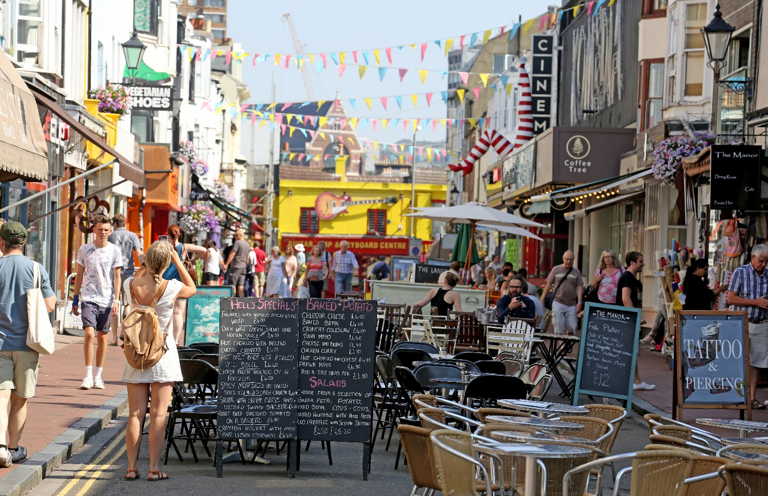The coronavirus restrictions have cost high street traders in Brighton and Hove the equivalent of more than six months’ worth of lost income.
The estimate appears in a new report published by a policy and research institute called the Centre for Cities today (Monday 24 January).
The loss of income amounted to 28 weeks’ worth of business, with only four towns or cities in the south east hit harder than Brighton.
Nationally, the report ranked Brighton 31st out of Britain’s 52 biggest towns and cities.
Shop vacancy rates have remained almost unchanged, with Brighton ranked seventh in the south east and, nationally, 49th out of 52.
The report warned: “In prosperous city centres, lost sales are linked to an increase in business closures.
“The government’s covid-19 support successfully stalled the decline of many struggling high streets.
“But (it) was less effective in economically stronger places due to higher rents and a lack of custom from office workers.
“That said, while stronger city centres have borne the economic brunt of the pandemic, their higher levels of affluence mean that, if restrictions end and office workers return, they will likely recover quickly.
“Meanwhile, while government support has sheltered weaker places, it may have simply stored up pain for the future.
“Many less prosperous places in the south east face a wave of new business closures this year.
“To avoid permanently levelling down prosperous places, policy-makers should run campaigns to encourage leisure visitors back when safe to do so and provide part-time season tickets to encourage workers back to the office.
“For struggling places, policy-makers drafting the Levelling Up White Paper should focus on dealing with struggling places’ fundamental economic problems to address high street decline.
“This means investing in skills and ways to strengthen the wider local economy to increase money in shoppers’ pockets, rather than on ‘cosmetic’ quick fixes such as hanging baskets and painting shop fronts.”
The Centre for Cities’ chief executive Andrew Carter said: “While the pandemic has been a tough time for all high streets, it has levelled down more prosperous cities and towns in the south east.
“Despite this, the strength of their wider local economies means they are well placed to recover quickly from the past two years.
“The bigger concern is for economically weaker places – primarily in the north and midlands – where covid-19 has actually paused their long-term decline.
“To help them avoid a wave of high street closures this year, the government must set out how it plans to increase people’s skills and pay to give them the income needed to sustain a thriving high street.
“Many of these places are in the so-called ‘Red Wall’ so there is a political imperative for the government to act fast, as well as an economic one.”








